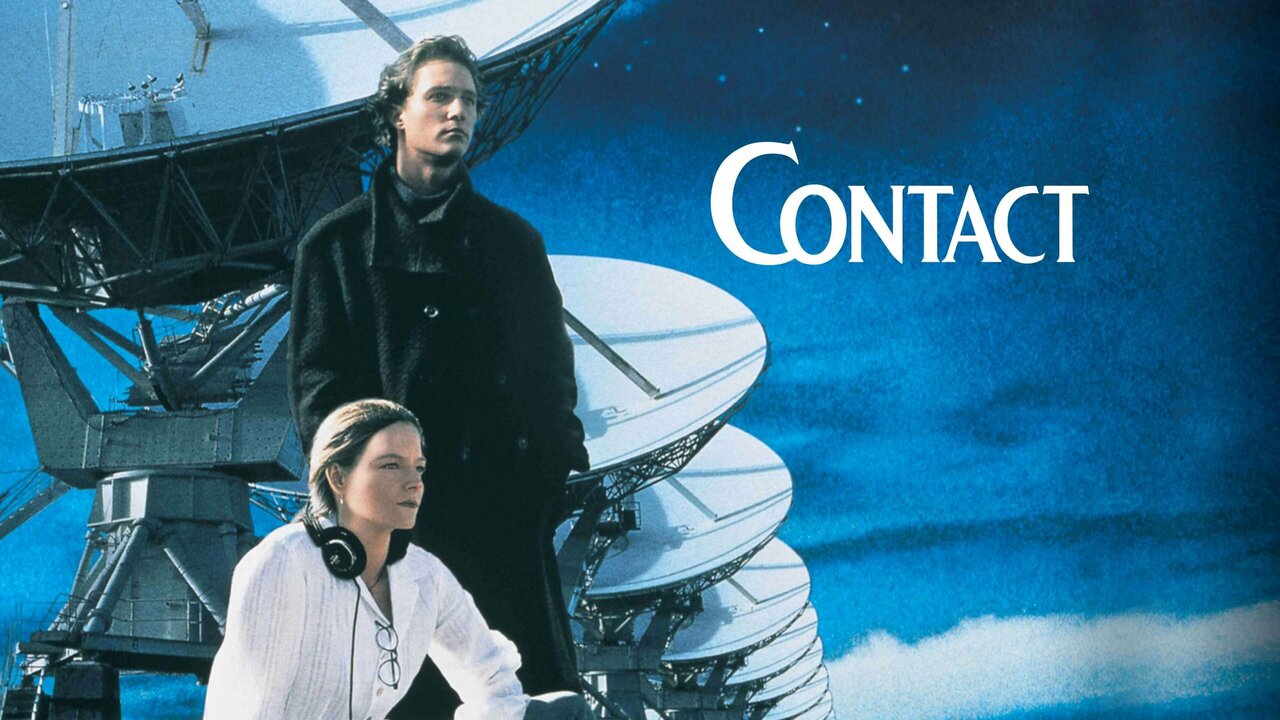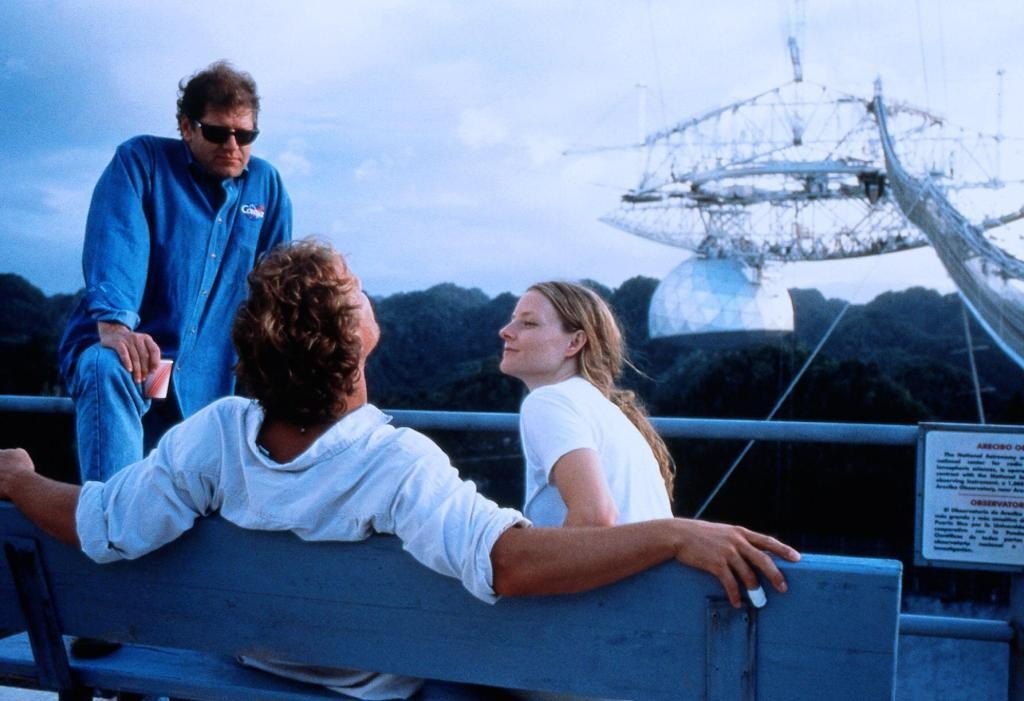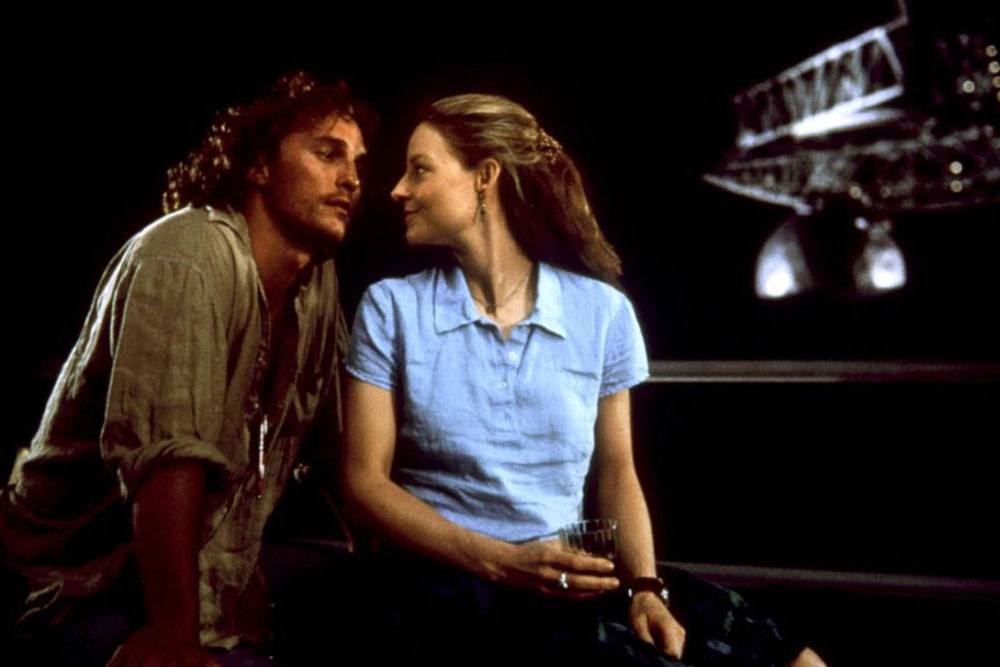Contact (1997)

Contact is a 1997 American science fiction film directed by Robert Zemeckis, adapted from the 1985 novel of the same name by Carl Sagan. The story, which was co-written by Sagan and his wife Ann Druyan, explores profound themes of science, faith, and humanity’s quest for knowledge beyond Earth. The film follows Dr. Eleanor “Ellie” Arroway, a scientist played by Jodie Foster, who dedicates her life to searching for extraterrestrial intelligence. Through its plot and themes, Contact raises many interesting questions about the universe, belief, and the relationship between science and religion.
The film opens with Ellie working at a small radio telescope in a remote part of the desert, searching for signs of alien life. Her determination leads to the discovery of a mysterious signal from the star Vega. This signal contains a mathematical pattern that suggests it is of artificial origin, rather than a natural phenomenon. As Ellie and her colleagues work to decode the signal, they realize that it contains blueprints for constructing a machine—presumably a means of communicating with the alien civilization.
As the story progresses, Ellie faces challenges not only in her scientific work but also in the way others perceive her mission. She deals with skepticism from both the scientific community and the public, as well as opposition from government officials. A key part of the plot is Ellie’s relationship with Palmer Joss (played by Matthew McConaughey), a theologian who questions whether humanity is ready to meet extraterrestrial life and whether such a discovery would change the way people view their own religious beliefs.
One of the main themes of Contact is the tension between science and faith. Throughout the film, Ellie represents the scientific worldview—relying on evidence, reason, and logic to understand the world. In contrast, Palmer represents faith and spirituality, suggesting that some questions cannot be answered by science alone. Their interactions reveal the challenges humanity faces in reconciling scientific discoveries with long-held religious beliefs.
Another key theme of the film is the idea of human connection. Ellie’s personal journey is shaped by her desire for meaning and her search for answers about the universe. She is driven by a need to understand humanity’s place in the cosmos and to find something greater than herself. This theme is underscored by the film’s portrayal of Ellie’s emotional struggles, including her memories of her late father, who inspired her scientific curiosity.

The film also explores the loneliness that can come with scientific discovery. Despite the excitement of finding evidence of extraterrestrial life, Ellie finds herself isolated in many ways. Her work as a female scientist in a male-dominated field further emphasizes this isolation. Contact challenges the viewer to consider what it means to be human in a vast, unknown universe, and whether the search for alien life reflects a deeper yearning for connection and meaning.

The direction by Robert Zemeckis is visually stunning, especially in the scenes that depict space and the journey to meet the aliens. The film uses special effects to create a sense of awe and wonder, while also grounding the story in realistic scientific concepts. The pacing of the film may be slower than typical blockbuster movies, but it allows for deeper exploration of the themes and characters.

In conclusion, Contact is not just a science fiction film; it is a reflection on humanity’s place in the universe and the complex relationship between science, faith, and the search for meaning. The movie encourages viewers to think about the importance of both logic and belief in our understanding of the world around us. Through Ellie’s journey, the film asks fundamental questions about what it means to be human, and how the discovery of extraterrestrial life might change our view of ourselves and our place in the cosmos. The film’s powerful themes and emotional depth make it a timeless exploration of the mysteries of the universe.











